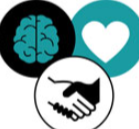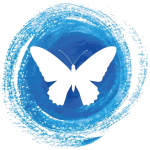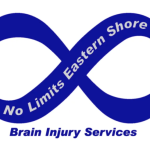
The Brain Injury Services Unit (BISU) connects people with brain injury resources and information. BISU manages state funding for nine community-based brain injury programs across Virginia and reports annually to the Virginia General Assembly on the number of people served, services provided, and additional funding secured.
These nine programs offer comprehensive services, including:
- Resource Coordination – connecting individuals and families to statewide brain injury resources.
- Clubhouse/Day Programs – structured daytime support programs.
- Case Management – assistance with navigating services for adults and children.
Services are often low- or no-cost, but vary by your locality. Please contact your local program for more information.
Find Local Brain Injury Providers
Choose Your City or County:

Brain Injury Connections of the Shenandoah Valley
A Brain Injury Service Provider offers community-based brain injury programs.
Address: JMU Campbell Building, 755 Martin Luther King Junior Way, Harrisonburg, VA 22801
Phone: 540-568-8923
Fax: 540-492-5587
Website: bicsv.org
Email: info@bicsv.org

Brain Injury Services, Inc.
A Brain Injury Service Provider offers community-based brain injury programs.
Address: 8136 Old Keene Mill Road, Suite B-102, Springfield, VA 22152
Phone: 703-451-8881
Fax: 703-451-8820
Website: braininjurysvcs.org
Email: info@braininjurysvcs.org

Brain Injury Solutions (formerly Brain Injuries Services of SWVA)
A Brain Injury Service Provider offers community-based brain injury programs.
Address: 3904 Franklin Road, Suite B, Roanoke, VA 24014
Phone: 540-344-1200
Website: bisolutions.org
Email: info@bisolutions.com

Community Brain Injury Services, Inc.
A Brain Injury Service Provider offers community-based brain injury programs.
Address: 9211 Arboretum Pkwy, Suite 100, Richmond, VA 23236
Phone: 804-386-0925
Website: communitybraininjury.org

Eggleston Services
A Brain Injury Service Provider offers community-based brain injury programs.
Address: 5145 East Virginia Beach Blvd., Norfolk, VA 23502
Phone: 757-858-8011
Website: egglestonservices.org
Email: info@egglestonservices.org

No Limits Eastern Shore
A Brain Injury Service Provider offers community-based brain injury programs.
Address: 24546 Coastal Boulevard, Tasley, VA 23341-0259
Phone: 757-789-3990
Fax: 855-978-1967
Website: nolimitseasternshore.com

SupportWorks Housing (formerly Virginia Supportive Housing)
A Brain Injury Service Provider offers community-based brain injury programs.
Address: The Bren Center at Cool Lane Commons, 1900 Cool Lane, Suite B, Richmond, VA 23223
Phone: 804-921-3466
Fax: 804-788-6827
Website: supportworkshousing.org

The BridgeLine
A Brain Injury Service Provider offers community-based brain injury programs.
Address: 315 Winding River Lane, Charlottesville, VA 22911
Phone: 434-220-4596
Website: thebridgeline.org
Email: info@thebridgeline.org
Resources
- Brain Injury Association of Virginia (BIAV)
Statewide information, referrals, and support to individuals with brain injury, their families, and professionals.- Toll-free helpline: 800-444-6443
- Email: info@biav.net
- Brain Injury Service Finder
Find additional resources and connect with local support using the Brain Injury Service Finder on Virginia Easy Access. - Brain Injury Screener
Answer evidence-based questions to learn about your personal experience with brain injury.
Contact
This program is managed by the Division for Community Living.